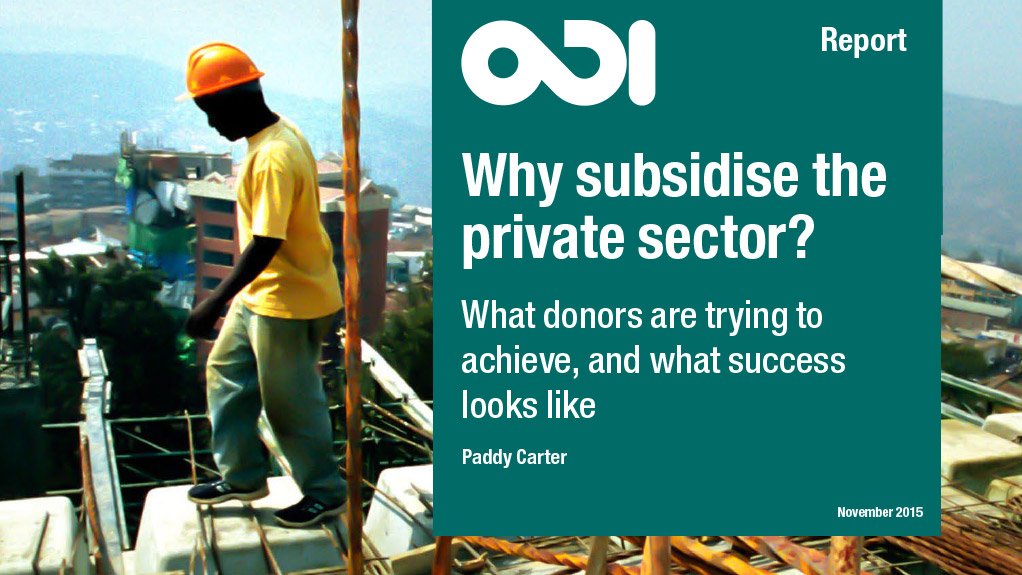- Why subsidise the private sector? What donors are trying to achieve, and what success looks like (Nov 2015)1.30 MB
This Overseas Development Institute paper makes a case for subsidising private sector investment in developing countries, based largely on the economic theory of positive externalities: the idea that the benefits from investment that accrue to society at large exceed the returns to private investors.
The implication is that without public intervention there is too little investment, from society’s point of view. The social benefits of investment not captured by private returns include: the creation of knowledge about production possibilities; the formation of economic networks and supply of intermediate inputs; and increased investments in human capital. The presumption should be that more investment in developing countries is a good thing, subject to the right safeguards, even if there is not always an obvious immediate link to poverty reduction.
If donors have procedures in place to ensure that they do in fact have a positive impact on investment by (more often than not) subsidising projects that genuinely require a subsidy to be viable, then accelerating private investment in developing countries is a perfectly valid use of aid.
EMAIL THIS ARTICLE SAVE THIS ARTICLE
To subscribe email subscriptions@creamermedia.co.za or click here
To advertise email advertising@creamermedia.co.za or click here











